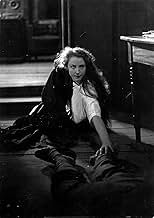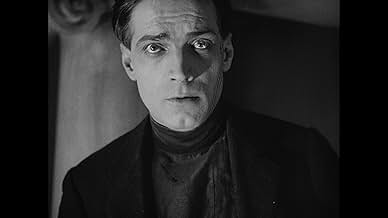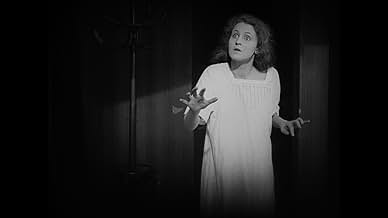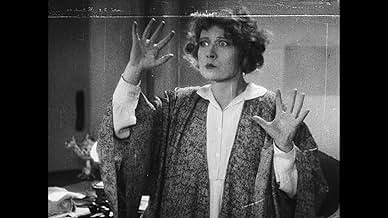Adicionar um enredo no seu idiomaIn the Crimea, the Reds and the Whites aren't done fighting, and Jeanne discovers that the man she loves is a Bolshevik (when he kills her father). Penniless, she returns to Paris where she ... Ler tudoIn the Crimea, the Reds and the Whites aren't done fighting, and Jeanne discovers that the man she loves is a Bolshevik (when he kills her father). Penniless, she returns to Paris where she works for her uncle. Soon after, her lover Andreas is in France to organize the sailors in... Ler tudoIn the Crimea, the Reds and the Whites aren't done fighting, and Jeanne discovers that the man she loves is a Bolshevik (when he kills her father). Penniless, she returns to Paris where she works for her uncle. Soon after, her lover Andreas is in France to organize the sailors in Toulon. So also is a thief, traitor, and libertine, Khalibiev, who wants to seduce Jeanne... Ler tudo
- Direção
- Roteiristas
- Artistas
- Hotel Maid
- (as Küpfer)
- Chief of Police
- (as Scholz)
- Direção
- Roteiristas
- Elenco e equipe completos
- Produção, bilheteria e muito mais no IMDbPro
Avaliações em destaque
The romantic account of "The Love of Jeanne Ney" goes from Ukraine to France, following the daughter of a French diplomat who is in love with a Bolshevik. The couple reunites in Paris after several vicissitudes. The characters include Jeanne's uncle, owner of a research firm, his blind daughter (Brigitte Helm, the Maria of "Metropolis"), a North American millionaire who has lost an invaluable diamond, and a Russian informer who sells to the highest bidder. There are moments of great visual force, as the scene in which the blind girl discovers the corpse of her father and the initial scenes of the Russian revolution.
However, the reason that motivates me to write about the film is, above all, extraordinary actor Fritz Rasp (1891-1976), as the ruthless snitch, fearsome as none. Rasp is an icon of the Teutonic villain: from the first time I saw him as the overwhelming "Thin Man" in Lang's "Metropolis," serving the owner of the city, every time I see him in another film, his characters are not to be trusted and his presence is intimidating: as the colonel in "Spies" and as "The Man" in "The Woman in the Moon", both by Lang, or as the Jew J. J. Peachum, "King of the Beggars", in Pabst's "The 3-Penny Opera". In "The Love of Jeanne Ney" Rasp builds the disgusting character of Khalibiev, an informant who fingers the Bolsheviks in Ukraine, and in Paris not only does he stalk Jeanne and her lover, but uses Jeanne's young blind cousin to concrete his evil plans.
As Pabst, Rasp also continued working during the Nazi period, although not acting with the frequency of the past. He had a long career, that included playing the lead in a film of the "new cinema" of West Germany, "Lina Braake" (1975), which was his last appearance in cinema.
The movie is hard to follow at times; this isn't some Michael Bay movie where you can simply shut your brain off to watch it. Even so, you'll feel fulfilled by the end of it. The only cast member whom I recognized was Brigitte Helm, who that same year played the Machine Man in Fritz Lang's "Metropolis".
Not a masterpiece, but worth seeing.
It is after the revolution Jeanne and her father record the events. Looks like her father is on the losing side when the Red Army arrives. He is dispatched and she is sent to Paris. That is where the story of the revolution ends and a good old-fashioned mystery begins, from the loss of a diamond to even possibly murder.
I always knew that the movie was a classic but other than G. W. Pabst (I have quite a few of his films); I just realized that this was from a novel by Ilja Ehrenburg. Looks like I have some reading to do. And I was surprised to see Brigitte Helm (Metropolis - The Creative Man/The Machine Man/Death/The Seven Deadly Sins/Maria). This film has many facets.
Você sabia?
- CuriosidadesMilly Mathis's debut.
- Versões alternativasTwo different edits of the film exist. The A Negative, for the American market (86 mins) and the B negative, for the German market (105 mins). The two versions feature different camera angles and some cuts were made for the American market.
Principais escolhas
Detalhes
- Tempo de duração
- 1 h 44 min(104 min)
- Mixagem de som
- Proporção
- 1.33 : 1



































